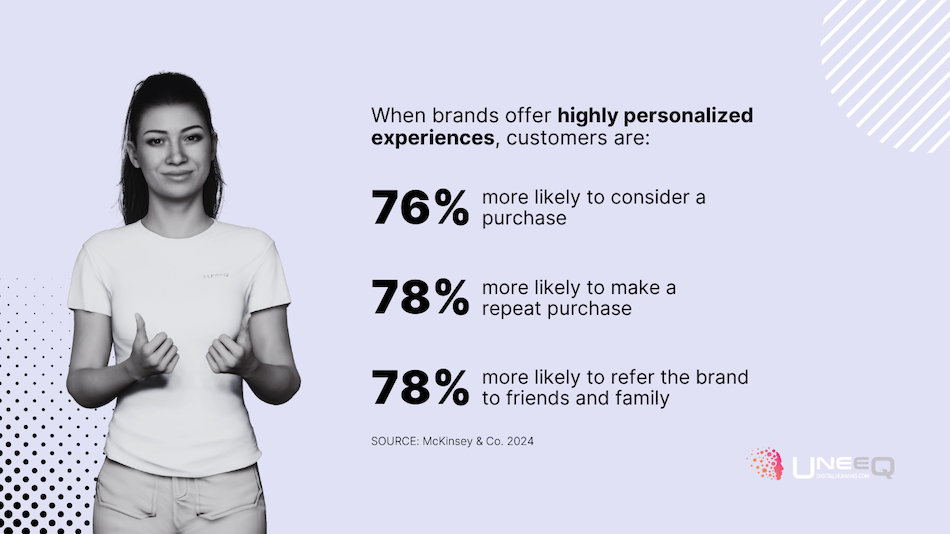What exactly is individualisation? How does it differ from personalisation? And why should it matter to your organisation? Advertising frequently focuses on specific target audiences – clusters of individuals who resemble the demographics of those you’re aiming to sell to.
Companies use these perfect customer profiles to customise their products and services for individuals with similar requirements. It’s not surprising that making things more personal works. A staggering 89% of business executives recently indicated that personalisation is crucial for their company’s future success over the next three years.
And it’s what consumers demand – 76% of shoppers express annoyance when brands fail to customise their offerings. Therefore, it’s clear that personalisation is beneficial. However, this doesn’t imply it’s flawless. Treating individuals as part of a homogeneous group is no longer sufficient. To engage today’s shoppers – to set your customer experiences apart – your products and services must be more customised to meet individual needs and wants, rather than general ones. This is where individualisation comes in a further development of personalisation that can address each customer uniquely.
Not too long ago, the cloud communication firm Twilio announced the start of a new ‘age of personalisation’ in its yearly Customer Engagement Report. According to Twilio, by adopting AI, companies can now start to offer distinct experiences to every single customer – genuine personalisation. We wholeheartedly agree with this viewpoint.
Personalisation stands in contrast to the ‘one-to-many’ or ‘one-to-some’ approach that numerous companies might be accustomed to. Essentially, this is the kind of marketing strategy where the majority of customers or potential customers get very much the same brand experiences, albeit with a few ‘customized’ additions like incorporating their name in automated messages. However, personalisation takes things a notch higher. This is particularly true now due to advancements in AI technology, which have expanded our capabilities in customer segmentation, data analysis, and the overall way individuals engage with a brand on the internet.
Individualisation converts

Why does personalisation stand out as a significant shift? A key reason it’s so attractive is that it brings together the best aspects of in-person brand interactions. Whether it’s a salesperson in a clothing store who helps you discover your style, or a travel agent who crafts your perfect getaway from nothing, the most impactful customer experiences usually involve direct, attentive dialogues with someone who truly understands what you’re looking for.
They engage with you, not just talk at you. And with the emergence of language models, individuals have become accustomed to engaging in real-time, tailored conversations that mimic human interaction online. These innovations are influencing what consumers anticipate from their online experiences, and companies that fail to meet these expectations risk missing out on a significant amount of brand value. The positive aspect is that brands can begin to offer personalization now with the help of generative AI.
Some have already made the switch. For instance, Wayfair, a company specialising in home goods, understands that picking out interior design is a deeply personal journey for many. It can be challenging for customers to express or even know what they desire, so the company has launched Decorify, a Gen-AI-powered application that allows users to upload photos of their homes and visualise how their spaces would look with virtual decor and furnishings from its collection.
f you enjoyed this article and wish to know more about individualisation then our blog offers a diverse range of articles with varying perspectives including Personalisation vs. Individualisation – the marketing distinction, Individualisation, hyper-personalisation and self-obsession and The future of ecommerce is individualisation.
SwiftERM are Microsoft Partners and major providers of hyper-personalisation, and individualisation software for ecommerce marketing. If you would like to know more about what individualisation can offer your business, we would be delighted to offer our assistance, simple contact us via the link above.





